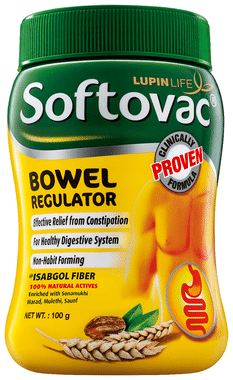Maxicef 1000mg Injection
Product introduction
Maxicef 1000mg Injection is commonly used to treat critically ill patients admitted to the hospital. This medicine is given by drip or by direct injection into a vein under the supervision of a doctor or a nurse. The dose will depend on what type of infection you have, where it is in the body, and how serious it is. You should keep taking the injection for as long as you are prescribed, even if your symptoms quickly improve. If you stop taking it too early, the infection may return or worsen.
Common side effects of Maxicef 1000mg Injection include rash, itching, nausea, vomiting, headache, fever, diarrhea, or local redness and swelling at the site of injection. These side effects are usually temporary and go away during treatment as your body adjusts to the medicine. Consult your doctor if these side effects bother you or do not go away.
Before starting treatment with this medicine, you should tell your doctor if you have any liver or kidney problems or if you are allergic to any antibiotics. While using it, your doctor may advise blood tests to monitor your kidney function. This medicine is generally regarded as safe to use in pregnancy and breastfeeding if prescribed by your doctor.
Uses of Maxicef Injection
- Treatment of Severe bacterial infections
Benefits of Maxicef Injection
In Treatment of Severe bacterial infections
Side effects of Maxicef Injection
Common side effects of Maxicef
- Injection site reactions (pain, swelling, redness)
- Nausea
- Vomiting
- Headache
- Diarrhea
- Skin rash
- Increased liver enzymes
- Positive Coombs test
- Increased prothrombin time
- Decreased phosphate level in blood
- Increased partial thromboplastin time (PTT)
- Itching
How to use Maxicef Injection
How Maxicef Injection works
Safety advice
Avoid prolonged use of Maxicef 1000mg Injection, since it may have possible effects such as rash and diarrhea.
What if you forget to take Maxicef Injection?
All substitutes
Quick tips
- Do not skip any doses and finish the full course of treatment even if you feel better. Stopping it early may make the infection come back and harder to treat.
- Discontinue Maxicef 1000mg Injection and inform your doctor immediately if you get a rash, itchy skin, swelling of your face and mouth, or difficulty breathing.
- Diarrhea may occur as a side effect, but it should only stop when your course is completed. Inform your doctor if it does not stop or if you find blood in your stools.
Fact Box
Interaction with drugs
Patient concerns
FAQs
Can the use of Maxicef 1000mg Injection cause diarrhea?
What if I don't get better after using Maxicef 1000mg Injection?
Disclaimer:
Tata 1mg's sole intention is to ensure that its consumers get information that is expert-reviewed, accurate and trustworthy. However, the information contained herein should NOT be used as a substitute for the advice of a qualified physician. The information provided here is for informational purposes only. This may not cover everything about particular health conditions, lab tests, medicines, all possible side effects, drug interactions, warnings, alerts, etc. Please consult your doctor and discuss all your queries related to any disease or medicine. We intend to support, not replace, the doctor-patient relationship.References
- Briggs GG, Freeman RK, editors. A Reference Guide to Fetal and Neonatal Risk: Drugs in Pregnancy and Lactation. 10th ed. Philadelphia, PA: Wolters Kluwer Health; 2015. p. 222.
Marketer details
Expires on or after: July, 2025
A licensed vendor partner from your nearest location will deliver Maxicef 1000mg Injection. Once the pharmacy accepts your order, the details of the pharmacy will be shared with you. Acceptance of your order is based on the validity of your doctor's ℞ and the availability of this medicine.
In case of any issues, contact us
Email ID: care@1mg.comPhone Number: 0124-4166666
Address: 5th Floor Tower - B of the Presidency Building, 46/4 Mehrauli Gurgaon Road, Sector 14, Gurugram, Haryana-122001, India
Lab tests offered by us











